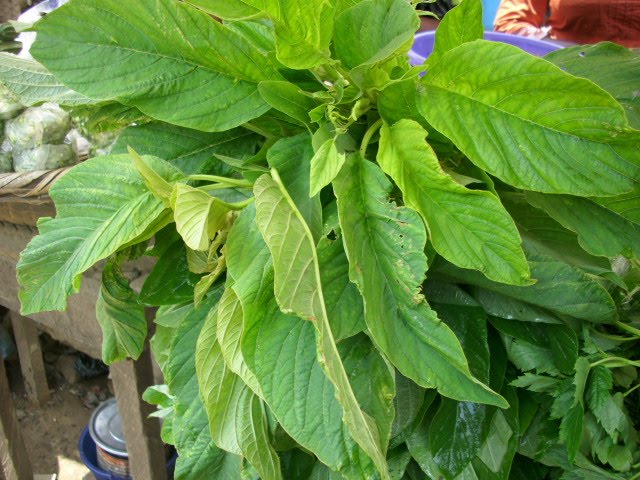Anaemia or low blood is a global public health problem with prevalence higher among low-income countries. The prohibitive cost of treatment has continued to fuel interest in the screening of medicinal plants for their potentials to boost low blood.
In poor and developing countries where access to anti-anaemic drugs is a challenge or the cost is prohibitive, the use of herbs and natural vegetables alone or in combination with anti-anaemic drugs in the treatment of low blood has continued to gain traction.
Leafy vegetables serve as indispensable constituents of the human diet, supplying the body with proteins, vitamins and minerals. Several leaves and vegetables have been screened for their potential to help to form blood, especially in the amelioration and treatment of low blood. The objective is always to get the lowest effective dose which will produce maximum efficiency with the least side effects.
Water leaf, fluted pumpkin (Ugwu) and African Spinach are among the abundant and widely consumed leafy vegetables in West Africa. Now, in a study that compared the potential of these vegetables to boost low blood, experts said they all have various degrees of efficacy in boosting blood level but green amaranth is the best.
In test animals, researchers found that amaranth caused the highest percentage increase in blood level followed by Ugwu and waterleaf in a decreasing order. It was in the 2020 edition of the European Journal of Biomedical and Pharmaceutical Sciences.
The study was conducted using 45 male adult Wistar rats. Anaemia was induced using a 10 days oral administration of 2,4-Dinitrophenylhydrazine (DNPH). The animals were treated using 30 and 60mg/kg ethanolic leaf extracts and Astymin, a standard anti-anaemic drug. Haematological parameters were analysed using standard automated methods. It lasted for 28 days.
Talinum triangulare commonly known as water leaf or gbure (Yoruba) is consumed as a vegetable normally as a sauce constituent. It contains important nutrients such as proteins, vitamins and β-carotene as well as essential minerals like potassium, magnesium and calcium.
Medicinal uses of water leaf include treatment for diarrhea and other gastrointestinal disturbances, inflammation, obesity and cardiovascular diseases.
Telfairia occidentalis, commonly known as fluted pumpkin or Ugwu is a vegetable with luxuriant green leaves that is mostly cultivated for both culinary and medicinal uses. It is rich in antioxidants, proteins, fibre, minerals like calcium, iron, sodium as well as vitamins B1, B3 and C.
It is widely used in the folk remedy of diabetes mellitus, hypertension, inflammations and bacterial infections. Reports have shown that it boosts blood level, protects the liver and ability to enhance male fertility.
Amaranthus hybridus is commonly known as African Spinach, amaranth or Efo Tete (Yoruba). It is a green leafy vegetable consumed alone or with other leafy vegetables as soup or other delicacies. It is rich in protein, minerals like sodium, potassium, magnesium, iron and phosphorus, vitamins A and C and carbohydrate and fibre. Its medicinal uses include treatment for indigestion, toothache, boils, burns and snake bites.
According to the study, the mean values for blood cell count and other red cell indices were found to be significantly higher among rats treated with extracts of water leaf, fluted pumpkin and African spinach compared to the untreated chemically induced anaemic Wistar rat.
When compared to Astymin, a standard anti-anaemic drug, the mean value for packed cell volume (PCV) was found to be higher among the animals treated with 60mg/kg of African spinach, the mean red blood cell (RBC) count was higher in animals treated with water leaf as well as among rats treated with 30mg/kg of African spinach.
The leaf extracts showed varying effects on the white blood cell of the animals. Extract of water leaf and African spinach caused a significant reduction in the values of white blood cell count compared to the untreated animals while the ethanolic extract of fluted pumpkin caused a significant increase compared to the untreated animals.
A reduction in the values of white blood cell count means the body is not making enough white blood cells and it can increase the risk of getting infections.
This suggests that these leaves extract may in some way play a possible role in regulatory adjustment of the immune system.
According to the researchers, “It will be interesting to see what happens when these extracts are combined in order to harness their different potential to boost blood level and regulate the immune system.
Moreover, foods that are rich in iron and vitamins are also used to beat anaemia and boost blood levels. These include beans, pigeon peas, spinach, okra, green leafy vegetables, bananas, fish, oysters, and organ meat, such as kidney and liver.
Also, researchers had, in clinical studies, shown that extracts of date palm, beetroot, nettle, cowhage or velvet bean, pawpaw, fig tree and sorghum could be effectively used to improve blood count, as an alternative or complement to blood transfusion, and heal anaemic conditions such as in sickle cell anaemia and malaria.






